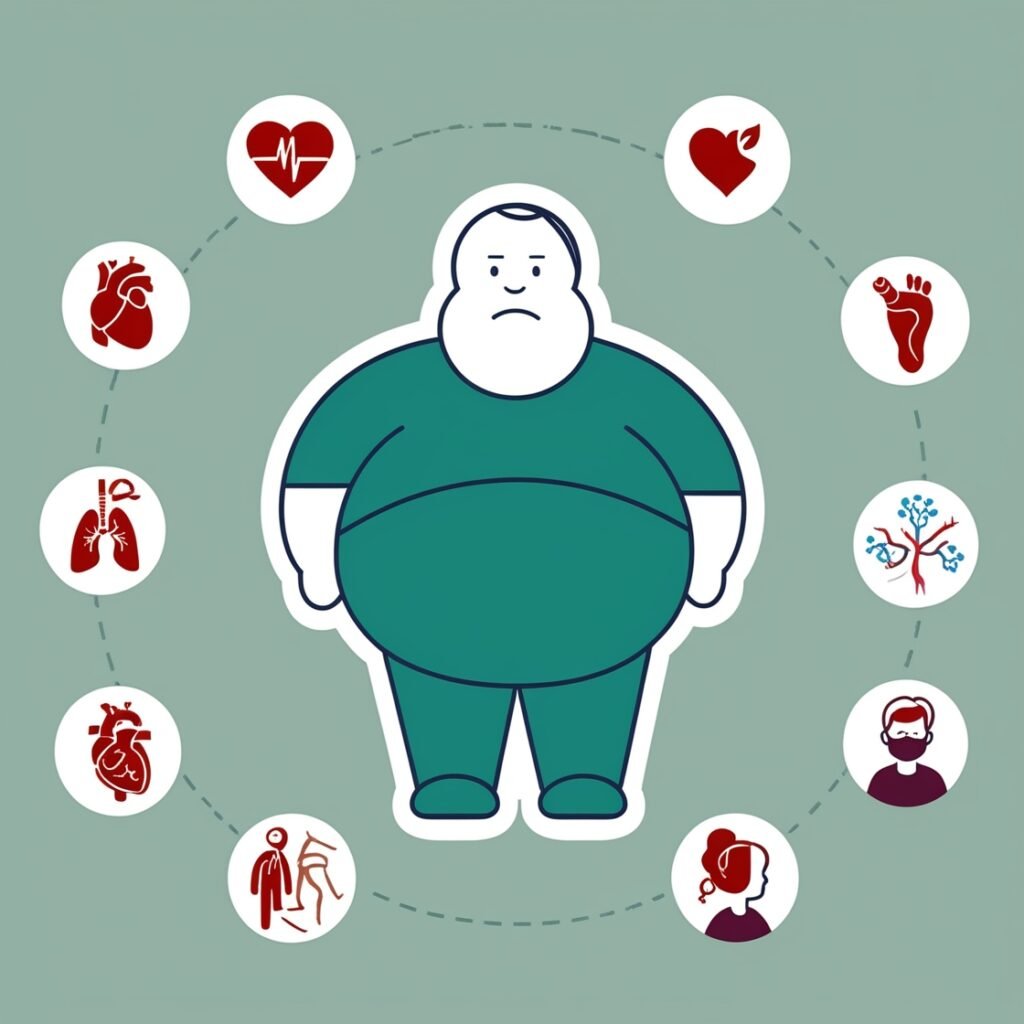Introduction
Menopause is a journey every woman will experience, yet it often remains shrouded in mystery and misconception. Have you ever wondered why hot flashes, mood swings, or sleep disturbances become a part of this phase? Or perhaps you’ve asked yourself how best to navigate the changes in your body and mind during this transformative time?
This guide is here to shed light on the stages of menopause, the symptoms you might encounter, and practical strategies to manage them. From lifestyle adjustments and natural remedies to dietary changes and medical interventions, we’ll explore actionable ways to empower you during this pivotal chapter of life. Let’s break down the barriers, debunk the myths, and embrace menopause not as a challenge but as an opportunity for growth and self-care.
Table of Contents
The Menopause
The Stages of Menopause
Understanding the stages of menopause is key to navigating this natural transition with confidence. Did you know that menopause isn’t just a single event but a process that unfolds over several years? Each stage comes with its own set of changes and challenges, and knowing what to expect can make all the difference.
1. Peri-menopause: The Prelude
Perimenopause can begin several years before menopause itself. During this stage:
- Hormonal fluctuations are common, leading to irregular periods.
- You might experience symptoms like hot flashes, mood swings, or sleep disturbances.
- This phase usually starts in your 40s but can vary from woman to woman.
It’s a good time to tune into your body and consider lifestyle adjustments like maintaining a balanced diet or incorporating stress-reducing activities such as yoga or mindfulness.
2. Menopause: The Milestone
Menopause is officially marked when you’ve gone 12 consecutive months without a menstrual period. The average age for this milestone is 51, but it can occur earlier or later. Here’s what to know:
- Symptoms like vaginal dryness or reduced libido might become more noticeable.
- Your body produces significantly less estrogen, which can impact overall health.
- It’s an ideal time to consult with your healthcare provider about managing symptoms.
3. Post-menopause
Once menopause is behind you, you enter postmenopause—a stage that lasts for the rest of your life. Key points about this phase include:
- Some symptoms, like hot flashes, may gradually fade, but others, such as the risk of osteoporosis or heart disease, may increase.
- Focusing on long-term health becomes essential, including regular exercise and monitoring your bone density.
Understanding these stages helps you stay proactive about your health. Whether you’re in any stage, each phase offers an opportunity to prioritize your well-being and embrace the changes with grace. After all, menopause is not an end—it’s a new beginning.
Lifestyle Adjustments to Manage Menopause
Managing menopause doesn’t have to feel overwhelming. Small, intentional lifestyle adjustments can help you regain control and navigate this phase with confidence. Are you wondering how to reduce those persistent hot flashes or improve your mood swings? Let’s explore simple yet powerful changes that can make a big difference in your daily life.
1. Prioritize Regular Exercise
Staying active is one of the best ways to manage menopause symptoms. Not only does it improve mood and energy levels, but it also helps combat weight gain and supports bone health. Try incorporating:
- Low-impact cardio like walking, swimming, or cycling.
- Strength training to maintain muscle mass and improve bone density.
- Relaxing activities such as yoga or tai chi to reduce stress and enhance flexibility.
Even 30 minutes a day can create a noticeable impact. Remember, consistency is key!
2. Optimize Your Diet
Your body’s nutritional needs shift during menopause, so fueling it with the right foods is essential. Focus on a menopause-friendly diet that includes:
- Calcium-rich foods like leafy greens, almonds, and fortified plant-based milk to support bone health.
- Phytoestrogens found in flaxseeds, soy, and chickpeas to balance hormones naturally.
- Omega-3 fatty acids from salmon, walnuts, or chia seeds to reduce inflammation and improve mood.
Stay hydrated, too—water helps alleviate bloating and keeps your skin glowing.
3. Prioritize Quality Sleep
Menopause can wreak havoc on your sleep schedule, but a few adjustments can help you rest better. Start by:
- Creating a consistent bedtime routine to signal your body it’s time to wind down.
- Keeping your bedroom cool and dark to reduce night sweats.
- Limiting caffeine and heavy meals in the evening.
If sleep disturbances persist, consider relaxation techniques like guided meditation or deep breathing exercises.
4. Manage Stress Effectively
Stress management is vital during menopause. High stress levels can intensify symptoms like mood swings and fatigue. Here’s what can help:
- Daily mindfulness practices such as journaling or gratitude exercises.
- Engaging in hobbies that bring joy and relaxation.
- Setting boundaries to avoid overextending yourself.
Stress isn’t always avoidable, but learning to manage it can make a world of difference.
5. Build a Support System
You don’t have to go through menopause alone. Talk openly with friends, family, or a healthcare provider about what you’re experiencing. Joining a menopause support group can also provide comfort and tips from others navigating the same challenges.
Making these lifestyle adjustments won’t eliminate menopause symptoms entirely, but they can significantly improve your overall quality of life. By prioritizing exercise, eating mindfully, managing stress, and creating healthy routines, you can take charge of this phase with grace and resilience. Remember, small changes lead to big results over time!
Diet and Nutrition for Menopause
What you eat during menopause plays a powerful role in how you feel. As your body undergoes hormonal shifts, providing it with the right nutrients can help alleviate symptoms, support overall health, and even prevent long-term issues like osteoporosis or heart disease. Are you curious about which foods can make a difference? Let’s dive into how diet and nutrition can become your greatest allies during menopause.

1. Focus on Bone Health
With declining estrogen levels, the risk of osteoporosis increases. Support your bones by incorporating:
- Calcium-rich foods such as yogurt, cheese, leafy greens, and fortified plant-based milks.
- Vitamin D sources like fatty fish (e.g., salmon and mackerel), eggs, or fortified cereals.
- Magnesium-rich options like nuts, seeds, and whole grains to enhance bone density.
Consider adding a supplement if your diet falls short, but consult your doctor first.
2. Incorporate Hormone-Balancing Foods
Certain foods contain natural compounds that may help balance your hormones and ease menopause symptoms. These include:
- Phytoestrogens: Found in soy products (tofu, edamame), flaxseeds, and chickpeas, they mimic estrogen in the body.
- Healthy fats: Avocados, olive oil, and nuts can help reduce inflammation and stabilize moods.
- Whole grains: Quinoa, brown rice, and oats keep blood sugar levels steady, reducing energy crashes.
A diet rich in these foods can help you feel more in control of your body.
3. Stay Hydrated
Dehydration can worsen symptoms like hot flashes and bloating. Aim for at least 8-10 glasses of water daily to keep your body well-hydrated. Herbal teas, such as chamomile or peppermint, can also be soothing alternatives.
4. Minimize Trigger Foods
While some foods nourish your body, others can exacerbate symptoms like hot flashes or mood swings. Try to:
- Limit caffeine and alcohol, which can trigger night sweats and disrupt sleep.
- Avoid spicy foods if they intensify hot flashes.
- Reduce processed sugars, which can cause energy spikes and crashes.
Making small tweaks to avoid triggers can lead to noticeable improvements.
5. Boost Your Energy Levels
Feeling fatigued? Certain foods can help combat low energy:
- Protein-packed snacks like Greek yogurt, boiled eggs, or hummus with veggies.
- Iron-rich options like spinach, lentils, and lean meats to prevent anemia.
- B-complex vitamins from foods like bananas, sweet potatoes, and nuts to support energy metabolism.
Pairing these with regular meals ensures sustained energy throughout the day.
It isn’t about restriction—it’s about nourishing your body with foods that help you feel your best. By focusing on bone health, hormone balance, and energy-boosting nutrients while avoiding triggers, you can manage menopause with confidence. Remember, small dietary shifts can lead to big health benefits over time. Take it one meal at a time!
Natural Remedies and Holistic Approaches
Are you looking for gentle, natural ways to manage menopausal symptoms? Many women are turning to holistic remedies that focus on supporting the body and mind without relying solely on medications. These approaches often blend ancient wisdom with modern wellness practices, offering solutions that feel both empowering and effective. Let’s explore how natural remedies can help you feel balanced during menopause.
1. Herbal Remedies for Symptom Relief
Herbs have long been used to address hormonal changes, and many can ease common menopausal symptoms. Popular choices include:
- Black cohosh: Known for reducing hot flashes and night sweats.
- Red clover: Contains phytoestrogens that mimic estrogen and may improve mood and bone health.
- Evening primrose oil: Helps with hot flashes and breast tenderness.
- Ashwagandha: An adaptogen that supports stress management and energy levels.
Always consult with a healthcare provider before adding supplements to your routine.
2. Acupuncture for Hormonal Balance
Acupuncture, a traditional Chinese medicine practice, is gaining popularity for menopausal management. By stimulating specific points in the body, it may:
- Reduce the frequency and intensity of hot flashes.
- Improve sleep quality.
- Alleviate anxiety and mood swings.
This non-invasive method has helped many women find relief without side effects.
3. Aromatherapy to Soothe the Mind and Body
Essential oils can be a wonderful tool for relaxation and symptom relief. Consider these options:
- Lavender oil: Promotes calmness and better sleep.
- Peppermint oil: Can cool the body and help with hot flashes.
- Clary sage oil: Known for its hormone-balancing properties.
Diffuse these oils in your home or add a few drops to a warm bath for a spa-like experience.
4. Mind-Body Practices for Stress and Symptom Management

Stress can amplify menopausalsymptoms, so incorporating practices that connect the mind and body is essential. Try:
- Yoga: Improves flexibility, reduces stress, and may alleviate hot flashes.
- Meditation: Helps with emotional balance and promotes mindfulness.
- Breathwork: Simple breathing exercises can quickly reduce stress and improve focus.
These techniques are easy to integrate into your daily routine and provide long-term benefits.
5. Nourish Your Body Naturally
Complement your remedies with nourishing foods and drinks. For example:
- Herbal teas like chamomile or peppermint can soothe digestion and promote relaxation.
- Bone broth is rich in nutrients and supports joint and bone health.
- Turmeric has anti-inflammatory properties and may reduce joint pain.
Natural remedies and holistic approaches empower you to take control of your menopause journey in ways that feel authentic and supportive. By embracing these gentle methods—whether through herbs, acupuncture, or mindfulness practices—you can create a personalized plan that aligns with your body’s needs. Remember, every woman’s experience is unique, so finding what works for you is key to thriving during this transformative time.
Medical Interventions for Menopause
When natural remedies and lifestyle changes aren’t enough to manage menopausal symptoms, medical interventions can offer much-needed relief. If you’ve been wondering about your options, this section will guide you through the most effective treatments available, helping you make informed decisions with your healthcare provider.

1. Hormone Replacement Therapy (HRT)
Hormone replacement therapy is one of the most well-known medical treatments for menopause. It involves supplementing your body with estrogen, or a combination of estrogen and progesterone, to alleviate symptoms like hot flashes, night sweats, and vaginal dryness. Benefits include:
- Significant relief from vasomotor symptoms (hot flashes and night sweats).
- Improved bone density, reducing the risk of osteoporosis.
- Better mood regulation and improved sleep quality.
However, HRT isn’t suitable for everyone. It’s essential to discuss potential risks, such as blood clots or certain cancers, with your doctor before starting treatment.
2. Non-Hormonal Medications
Not ready for or unable to use hormone therapy? There are non-hormonal options that can still make a big difference:
- Antidepressants: Certain low-dose antidepressants, such as SSRIs and SNRIs, can help reduce hot flashes and mood swings.
- Gabapentin: Originally used for nerve pain, this medication has been shown to relieve night sweats and hot flashes.
- Clonidine: A blood pressure medication that can help manage hot flashes for some women.
These treatments may be especially helpful if you have health conditions that make HRT unsafe.
3. Vaginal Estrogen Therapy
For women experiencing vaginal dryness, discomfort, or pain during intimacy, localized estrogen therapy can be a game-changer. It comes in the form of creams, rings, or tablets and offers these benefits:
- Direct relief without significant absorption into the bloodstream.
- Reduced risk of urinary tract infections.
- Improved vaginal health and elasticity.
Since it’s a localized treatment, it typically carries fewer risks than systemic HRT.
4. Bone-Strengthening Medications
If menopause has left your bones vulnerable to fractures, your doctor may recommend medications that enhance bone density, such as:
- Bisphosphonates: Help prevent bone loss and reduce fracture risks.
- Selective Estrogen Receptor Modulators (SERMs): Mimic estrogen’s protective effects on bones without affecting breast or uterine tissue.
- Denosumab: A newer option administered as an injection to slow bone loss.
These medications work best when combined with a diet rich in calcium and vitamin D.
5. Emerging Therapies
Research in menopause management is continually evolving, leading to promising new treatments:
- Tissue-selective estrogen complexes (TSECs): A newer generation of HRT with fewer side effects.
- Neurokinin-3 receptor antagonists: Currently being studied as a treatment for severe hot flashes.
- Customized bioidentical hormones: Personalized to your body’s needs, though their safety and efficacy remain a topic of debate.
It’s exciting to see these advancements, offering more tailored options for managing symptoms.
Medical interventions can provide significant relief, especially for women with severe symptoms. Whether you’re considering HRT, non-hormonal treatments, or newer therapies, it’s crucial to work closely with your healthcare provider to determine the best approach for your needs. With the right support, you can navigate this phase with confidence and reclaim your quality of life.
Long-Term Health Considerations
Menopause marks the beginning of a new chapter, and with it comes the opportunity to focus on your long-term health. While symptoms like hot flashes and mood swings may ease over time, this phase brings its own set of health challenges. Let’s dive into the key areas to prioritize so you can maintain vitality and well-being for years to come.
1. Bone Health: Guarding Against Osteoporosis
Did you know that bone density decreases rapidly after menopause due to lower estrogen levels? This increases the risk of osteoporosis and fractures. Here’s how you can protect your bones:
- Calcium and Vitamin D: Incorporate calcium-rich foods like dairy, leafy greens, and fortified products, and ensure you’re getting enough vitamin D through sunlight or supplements.
- Weight-bearing exercises: Activities like walking, jogging, or yoga help strengthen bones and maintain density.
- Medications if needed: Talk to your doctor about treatments like bisphosphonates or SERMs to prevent bone loss.
By prioritizing bone health, you’ll reduce the likelihood of fractures and enjoy an active lifestyle.
2. Heart Health: The Silent Priority
Cardiovascular health becomes a significant focus during menopause, as estrogen’s protective effect on the heart diminishes. Keep your heart healthy with these steps:
- Monitor cholesterol and blood pressure: Regular check-ups can help detect early signs of heart issues.
- Adopt a heart-healthy diet: Opt for foods rich in omega-3s, whole grains, and healthy fats like olive oil.
- Stay active: Cardiovascular exercises like swimming, biking, or brisk walking keep your heart strong.
Small lifestyle changes can go a long way in safeguarding your heart.
3. Mental Health and Cognitive Wellness
Hormonal changes during and after menopause can affect mood, memory, and cognitive function. Take proactive steps to support your mental well-being:
- Engage your brain: Activities like reading, puzzles, or learning a new skill can improve cognitive health.
- Mindfulness and meditation: Manage stress and boost mental clarity with daily mindfulness practices.
- Social connections: Maintaining a strong support network can alleviate feelings of isolation or anxiety.
Your mental health deserves just as much care as your physical health.
4. Weight Management and Metabolism
A slowing metabolism and hormonal shifts can make it harder to maintain a healthy weight. Here’s how to manage these changes:
- Focus on nutrient-dense foods: Prioritize lean proteins, vegetables, and whole grains over processed snacks.
- Regular exercise: Strength training helps maintain muscle mass, which supports a healthy metabolism.
- Portion control: Eating mindfully and avoiding overeating can make a big difference.
Staying mindful of these habits can help you feel confident in your body.
5. Regular Health Screenings
Post-menopausal women are at higher risk for certain conditions. Ensure you’re up to date with screenings for:
- Breast cancer: Mammograms should remain a priority.
- Cervical cancer: Even if you’re past childbearing age, regular Pap smears are essential.
- Diabetes and other metabolic conditions: Monitoring blood sugar levels is crucial as metabolism changes.
Prevention and early detection are key to staying healthy.
Menopause may bring new challenges, but it also offers an opportunity to refocus on your overall health. By taking proactive steps to support your bones, heart, mind, and body, you’ll set the stage for a vibrant, healthy future. Remember, every woman’s journey is unique, so listen to your body and work with your healthcare provider to create a plan tailored to your needs.
Debunking Myths About Menopause
Menopause is a natural life stage that every woman will experience, but it’s often surrounded by myths and misconceptions. These misconceptions can make this transition feel even more daunting than it needs to be. In this section, we’ll tackle some of the most common myths, providing you with the facts you need to approach this phase with confidence.
Myth 1: Menopause Happens Overnight
Many women believe that menopause occurs suddenly, with symptoms appearing out of the blue. In reality, it is a gradual process that can take several years, starting with perimenopause (the transition before menopause) and ending after you’ve gone 12 months without a period. During this time, hormone levels fluctuate, leading to symptoms like hot flashes and mood swings.
The truth: Menopause doesn’t happen overnight—it’s a slow, natural progression.
Myth 2: Hot Flashes Are Inevitable
Hot flashes are one of the most well-known menopausal symptoms, but they aren’t inevitable for every woman. Some women experience them more intensely than others, while some may not experience them at all.
The truth: While hot flashes are common, they don’t affect every woman. Lifestyle changes, hormone therapy, or other treatments can help manage them if they do occur.
Myth 3: Menopause Means the End of Your Sexual Life
It’s a common myth that menopause marks the end of a woman’s sexuality. Hormonal changes can affect libido, and vaginal dryness can make intimacy uncomfortable. However, with the right interventions, many women continue to have fulfilling sexual lives well into menopause and beyond.
The truth: Menopause doesn’t mean the end of your sexual life. With communication, self-care, and possible treatments like lubricants or hormonal therapy, intimacy can still be a part of your life.
Myth 4: You’ll Gain Weight and There’s Nothing You Can Do About It
The idea that menopause automatically leads to weight gain can feel like an overwhelming truth, but it’s not necessarily so. Hormonal shifts during menopause can make it harder to maintain weight, but this doesn’t mean you’re doomed to pack on the pounds.
The truth: Weight gain during menopause is often linked to a slowing metabolism, but with a balanced diet and regular exercise, you can still manage your weight. It’s all about adjusting to the changes in your body and taking a proactive approach to your health.
Myth 5: Menopause Means You’re No Longer a Woman
One of the most damaging myths is that menopause somehow diminishes your womanhood or makes you less feminine. This couldn’t be further from the truth. Menopause is just another phase in life, and it doesn’t change who you are or your value as a woman.
The truth: Menopause doesn’t define you—it’s just another stage of your journey. You are just as much a woman at 50 or 60 as you were at 30.
Myth 6: Hormone Replacement Therapy (HRT) Is Dangerous for Everyone
HRT is often portrayed as a risky treatment, leading many women to avoid it. However, recent studies show that when used appropriately, HRT can be a safe and effective way to manage symptoms like hot flashes, night sweats, and mood swings.
The truth: While HRT isn’t for everyone, it can be a safe and beneficial option for many women when prescribed and monitored by a doctor.
By debunking these myths, we hope to give you the facts and clarity you need to navigate menopause with confidence. Remember, menopause is a natural part of life, and each woman’s experience is unique. With the right knowledge, support, and approach, you can embrace this phase as a time of growth, strength, and renewal.
Conclusion
Menopause is undoubtedly a significant life transition, but it doesn’t have to be a daunting or isolating experience. By understanding the stages, making lifestyle adjustments, and exploring various treatments and remedies, you can manage the symptoms with confidence and grace. Have you ever thought about how the right diet, exercise routine, or holistic approach can make a world of difference in your menopause journey?
As you navigate this phase, remember that menopause is not the end of vitality, but the beginning of a new chapter in your life. Whether you seek natural remedies, medical interventions, or simple lifestyle changes, the power to take control is in your hands.
It’s important to stay informed, challenge the myths that surround menopause, and embrace the resources available to you. This phase offers a unique opportunity to prioritize your health, practice self-care, and discover new ways to live fully. So, why not take the first step today? Whether you’re just beginning your menopause journey or are already deep into it, know that you are not alone, and there are many tools, support systems, and strategies to help you thrive.
Now is the time to embrace this transformative stage with open arms and the right knowledge. Have you already begun making adjustments to your lifestyle, or are you considering medical or natural options to ease your transition? No matter where you are, remember that menopause is just another phase of life, and with the right mindset and resources, it can be a time of empowerment and growth.
References
- The North American Menopause Society (NAMS). What is Menopause? Retrieved from https://www.menopause.org
- Mayo Clinic. (2021). Menopause: Symptoms and Causes. Retrieved from https://www.mayoclinic.org
- National Institutes of Health (NIH). (2020). Menopause. Retrieved from https://www.nia.nih.gov
- Harvard Medical School. (2021). Managing Menopause: A Guide to Symptoms and Treatments. Retrieved from https://www.health.harvard.edu
- WebMD. (2021). Menopause Symptoms and Treatment. Retrieved from https://www.webmd.com
- American College of Obstetricians and Gynecologists (ACOG). (2021). Menopause. Retrieved from https://www.acog.org
- Healthline. (2021). Everything You Need to Know About Menopause. Retrieved from https://www.healthline.com
- The British Menopause Society. (2021). The Menopause: What You Need to Know. Retrieved from https://www.britishmenopause.org
- National Health Service (NHS). (2021). Menopause and Hormone Replacement Therapy (HRT). Retrieved from https://www.nhs.uk
- Johns Hopkins Medicine. (2020). Menopause: What to Expect and How to Manage Symptoms. Retrieved from https://www.hopkinsmedicine.org




